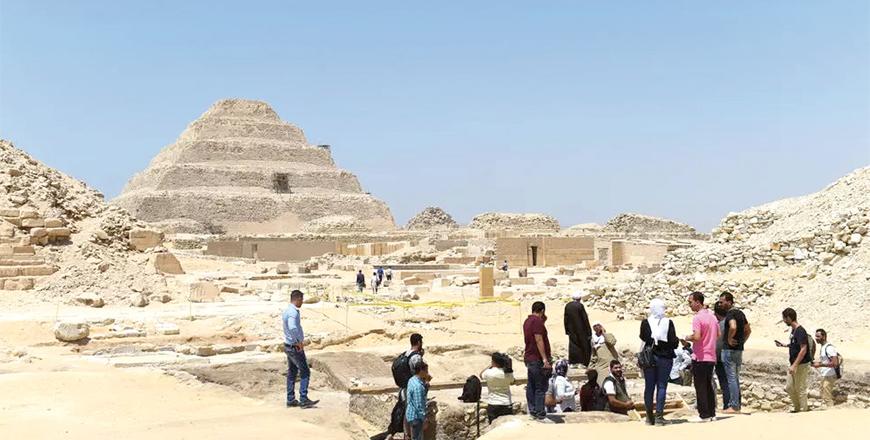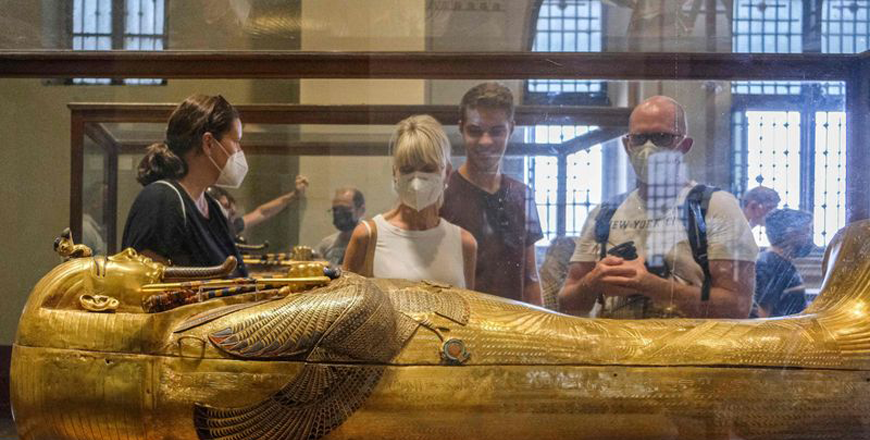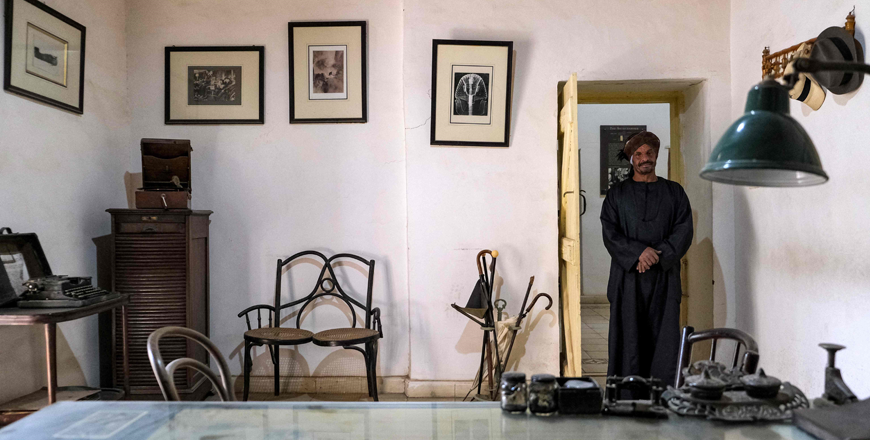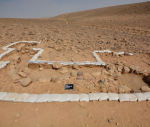You are here
Egyptian archaeologist Hawass sees role as 'custodian' of antiquities
By AFP - Dec 07,2019 - Last updated at Dec 07,2019
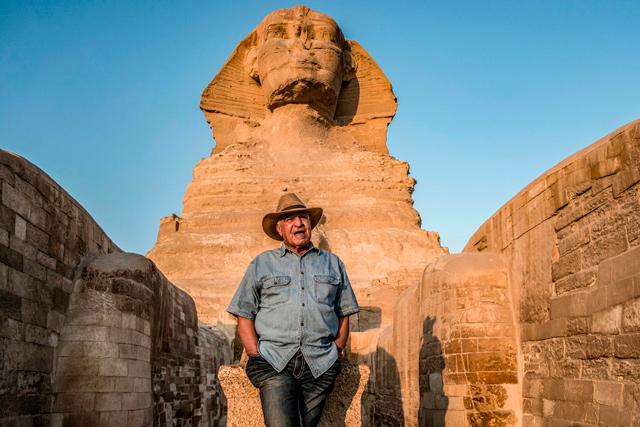
Zahi Hawass, Egyptian archaeologist and former antiquities minister, stands before the Great Sphinx of Giza during a lecture with a tourist group on ancient Egyptian history, at the Giza Necropolis on the southeastern outskirts of the capital on November 20 (AFP photo)
CAIRO — Standing at the foot of the towering Great Sphinx of Giza, Zahi Hawass revels in his reputation as an indefatigable yet controversial figure in the enigmatic world of Egyptology.
With the early morning sun-kissed pyramids behind him, the 72-year-old dubbed "the Egyptian Indiana Jones" posed casually for photos sporting his trademark cowboy hat.
"This is a real archaeologist's hat. Harrison Ford's was a fake," he joked with AFP, referring to the American actor and star of the Indiana Jones movies.
Hawass, who has appeared in dozens of documentaries about ancient Egypt, is himself a star attraction for a luxury archaeological tour organised by an operator based in Poland.
A larger-than-life character, who sees himself as "the custodian of Egyptian antiquities", he evokes in the same breath ancient deities and Pharaohs as well as his own name.
Regaling tour participants with stories of his archaeological adventures, he boasts of his international achievements and cheerfully poses for selfies.
The high energy show is all part of his rambunctious performance for the eager crowd who fork out almost 10,000 US dollars each for two weeks of travel basking in his knowledge on all things Pharaonic.
Despite his swagger, Hawass says he never once imagined he would have such a meteoric rise in the often dry and dusty world of archaeology.
"When I was young, I wanted to be a lawyer... I was a very bad student," he told AFP.
On a whim, a few friends advised him to study archaeology, and he fell instantly in love.
One day while out on a dig everything clicked when he uncovered a statue. "I thought to myself, I've found my passion," he said.
Today several decades later, he divides his time between digs in southern Egypt, his Cairo office, a daily sports workout and a multitude of prestigious conferences both at home and abroad.
But his flamboyant showmanship when enthusiastically unearthing Egypt's ancient treasures to a global audience has ruffled many in his esteemed academic community.
Some peers accuse him of being a businessman cashing in on his celebrity. And he admits that $150 per entrance ticket to one of his conferences is a little steep.
But to those who accuse him of lacking empirical rigour in his fieldwork, he hits back and points to his many awards.
"I have made some major discoveries," he said citing the tombs of the pyramid builders in Giza in the 1990s or the golden mummies of Bahariya Oasis, eastern Egypt, in 1996.
Fayza Haikal, professor of Archeology at the American University of Cairo (AUC), said his research methods are "serious".
"Like all stars, he has his fans and detractors," she said.
Hourig Sourouzian, a renowned Armenian archaeologist working in Upper Egypt, is more generous in his assessment.
He maintains Hawass has been a dynamic "engine" for Egyptology, translating to lucrative research grants from governments and funding bodies.
Hawass was head of Egypt's Supreme Council of Antiquities from 2002 to 2011 and then briefly minister of antiquities in early 2011.
It was a portfolio especially created for him. But he had to give it up right after the 2011 revolution that unseated Hosni Mubarak.
Employees hurled abuse at him amid charges of nepotism and accusations of smuggling antiquities to overseas buyers as he was escorted out of the Egyptian Museum.
He left in a haze of corruption allegations along with other Mubarak allies.
A case brought against him was overturned and the charges dropped on legal technicalities. Hawass maintains his innocence and boasts that the case never made it to court.
Under President Abdel Fattah Al Sisi, he remains an influential figure in the field, and he is effusive in his praise of the general-turned-politician saying he "saved Egypt".
There have been rumours of a bitter rivalry between him and the current minister of antiquities, Khaled El Enany, but Hawass dismisses such talk saying his successor is "doing a very good job".
"Enany when he came he depended on the people that I trained," he said. "And he calls me for advice all the time."
Disparagingly, Hawass continues to describe the 2011 uprising as a "stupid revolution" lamenting that the political turbulence delayed the opening of his brainchild, the Grand Egyptian Museum.
The gigantic museum, overlooking the Giza pyramids, is now set to open to the public in 2020 five years later than originally planned.
Hawass hopes it will lure back tourists after a slump since the revolution and a string of deadly terror attacks.
More than 11 million tourists visited Egypt in 2018 some drawn by many recent discoveries in which he was involved.
"We can say anything we want, but Zahi is the best ambassador for Egypt and archaeology," said Sourouzian.
Related Articles
CAIRO — Egypt announced on Saturday the discovery of a new trove of treasures at the Saqqara necropolis south of Cairo, including an ancient
QURNA, Egypt — It’s one of the 20th century’s most iconic photos: British archaeologist Howard Carter inspecting the sarcophagus of Tutankha
QURNA, Egypt — It’s one of the 20th century’s most iconic photos: British archaeologist Howard Carter inspecting the sarcophagus of Tutankha


